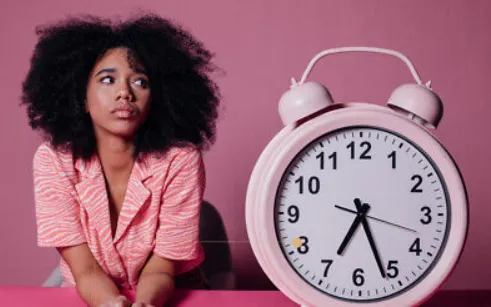
Dr. Andy's Desk: Here's Why Daylight Saving Time Can Be Tough on Our Bodies
Dr. Andy's Desk: Here's Why Daylight Saving Time Can Be Tough on Our Bodies
Sure, it's just an hour, but Daylight Saving Time has major implications for our health. Twice a year, we set our clocks forward or back for Daylight Saving Time (DST). While losing or gaining an hour may seem minor, our bodies don’t always agree. That one-hour shift disrupts our circadian rhythm—the internal clock that regulates sleep, energy, and overall well-being.
As a doctor and formulator of Good Day Chocolate, I’ve seen firsthand how even small sleep disruptions can impact mood, productivity, and long-term health. Let’s dive into why DST can be tough on our bodies and how we can adapt more smoothly.
The Science Behind DST Disruptions
Our bodies operate on a 24-hour cycle called the circadian rhythm, which is influenced by natural light. When we “spring forward” in March, we lose an hour of sleep and suddenly wake up when it's still dark out. This shift confuses our internal clock, making mornings groggier and nights harder to wind down.
Studies have shown that after the spring time change:
✅ Sleep deprivation increases, leading to fatigue and brain fog.
✅ Heart attack risk rises in the days following the switch.
✅ Mood and mental health can take a hit, with an increase in stress and irritability.
✅ Accidents spike, including more workplace injuries and car crashes.
That’s a lot of impact for just 60 minutes!
How to Adjust to the Time Change Like a Pro
The good news? You don’t have to suffer through the DST slump. Here are my top tips for easing the transition:
1. Gradually Shift Your Sleep Schedule
A few days before the time change, go to bed 15–20 minutes earlier each night. This helps your body ease into the new schedule instead of an abrupt shift.
2. Get Morning Sunlight
Natural light is the most powerful signal for resetting your circadian rhythm. Spend 10–15 minutes outside in the morning to help your body wake up naturally.
3. Be Mindful of Caffeine & Screens
Caffeine and blue light from screens can make it harder to fall asleep. Avoid both at least 2 hours before bed to keep your sleep cycle on track.
4. Support Sleep with Melatonin
Melatonin is a hormone that signals to your body when it’s time to sleep. A low-dose melatonin supplement—like our Good Day Chocolate Sleep—can help regulate your cycle and ease you into restful sleep after DST kicks in.
5. Keep a Consistent Routine
Try to wake up and go to bed at the same time every day, even on weekends. A steady schedule helps reinforce your internal clock, making the adjustment smoother.
The Bottom Line
Daylight Saving Time may seem like a small inconvenience, but it has real effects on our health. By preparing ahead of time, prioritizing sleep, and supporting your body’s natural rhythms, you can avoid the worst of the DST slump.
And if you need a little extra help adjusting, Good Day Chocolate Sleep with melatonin can be a tasty and effective way to get back on track. Sweet dreams!
